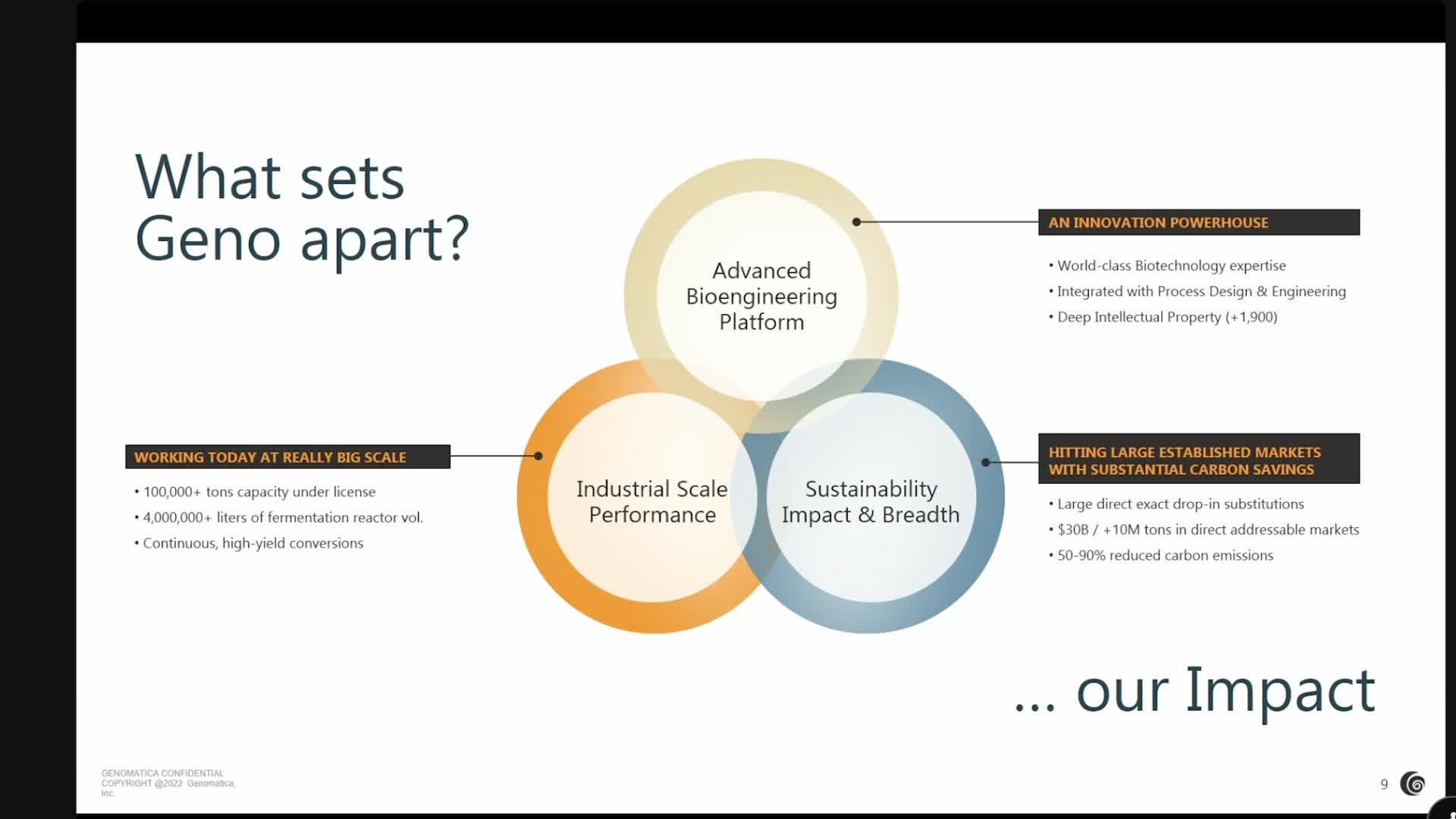Biomanufacturing push aims to cut carbon emissions drastically
August 13, 2024 | California State Assembly, House, Legislative, California
This article was created by AI summarizing key points discussed. AI makes mistakes, so for full details and context, please refer to the video of the full meeting. Please report any errors so we can fix them. Report an error »

In a recent government meeting, discussions centered on the significant potential of biomanufacturing to reduce carbon emissions and bolster the U.S. economy. A representative from Geno highlighted that if their biobased products, including CPL, HDO, and fatty alcohols, replaced conventional products, the U.S. could see a reduction of 85 million tons of carbon dioxide annually—equivalent to removing 18 million cars from the roads each year.
The representative emphasized the urgent need to enhance U.S. biomanufacturing infrastructure, noting that current facilities are insufficient for the necessary demonstration work before commercialization. Most of this work is currently conducted in Europe due to a lack of domestic options, which complicates financing efforts in a challenging economic climate. Building a fermentation facility can cost upwards of half a billion dollars, prompting calls for government support through loan guarantees, grants, and tax credits.
Additionally, the need for government demand for biobased products was underscored. The representative pointed out that the government is the largest customer globally and could significantly validate biobased products by prioritizing them in procurement processes. Efforts are underway to revamp the BioPreferred program, which aims to encourage the purchase of biobased products, though its effectiveness has been questioned since its inception.
The meeting concluded with a call for policies that enhance the competitive edge of biobased products, including potential tax credits for renewable chemicals, to level the playing field against established multinational corporations. The discussions reflect a growing recognition of the role biomanufacturing can play in addressing climate change while fostering economic growth.
The representative emphasized the urgent need to enhance U.S. biomanufacturing infrastructure, noting that current facilities are insufficient for the necessary demonstration work before commercialization. Most of this work is currently conducted in Europe due to a lack of domestic options, which complicates financing efforts in a challenging economic climate. Building a fermentation facility can cost upwards of half a billion dollars, prompting calls for government support through loan guarantees, grants, and tax credits.
Additionally, the need for government demand for biobased products was underscored. The representative pointed out that the government is the largest customer globally and could significantly validate biobased products by prioritizing them in procurement processes. Efforts are underway to revamp the BioPreferred program, which aims to encourage the purchase of biobased products, though its effectiveness has been questioned since its inception.
The meeting concluded with a call for policies that enhance the competitive edge of biobased products, including potential tax credits for renewable chemicals, to level the playing field against established multinational corporations. The discussions reflect a growing recognition of the role biomanufacturing can play in addressing climate change while fostering economic growth.
Don't Miss a Word: See the Full Meeting!
Go beyond summaries. Unlock every video, transcript, and key insight with a Founder Membership.
✓
Get instant access to full meeting videos
✓
Search and clip any phrase from complete transcripts
✓
Receive AI-powered summaries & custom alerts
✓
Enjoy lifetime, unrestricted access to government data
30-day money-back guarantee

